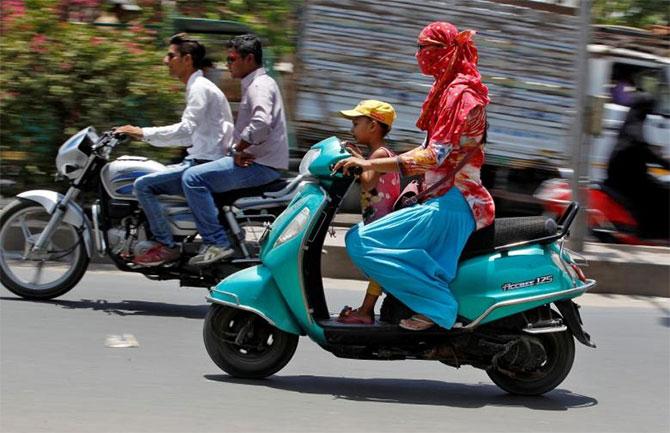Domestic two-wheeler sales, which were already struggling to recover from a slowdown and then the pandemic’s first and second wave, have been hit further by the Omicron wave.

After a very weak December quarter and a poor year-to-date fiscal year volumes—when sales plunged to the lowest in nine years, the signs in the first 15 days of January haven’t been encouraging either.
“Though the severity of the current wave is not as high as the previous one, it has hit the sentiments hard impacting conversion of enquiries into sales,” said Vinkesh Gulati, president, Federation of Automobile Dealers Association (FADA).
As a result, stocks are piling up. Average inventory at the dealerships currently stands at 50 days as against the norm of 25-30 days, he said.
There is a lot more to the sales hitting a speed bump in the world’s largest motorcycle and scooter market than just the pandemic.
Given the disproportionately high percentage of two wheeler buyers – close to 80-90 per cent, coming from the lower income group, the protracted slowdown is a telling tale of India’s inequitable economic growth and the widening income disparity, point out economists.
“The two-wheeler sales-- a proxy of an economy’s well-being -- have been slipping for three years.
"The consecutive fall indicates that the economic growth which has been slowing since FY18 is not equitable.
"The wage growth in rural India-- where the majority of the two-wheelers are sold, has been slowing down and hasn’t kept pace with inflation,” says Devendra Pant, chief economist and head public finance at India Ratings & Research.
Rakesh Sharma, executive director, Bajaj Auto, agrees. “Inequality is increasing. The plight of those at the bottom of the pyramid has worsened.
"A majority of the two-wheelers are bought by those who have a monthly income of less than Rs30,000 to Rs40,000,” he said.
The pandemic, according to Sharma, has only accelerated the fall.
According to Pant, sales are unlikely to pick up unless the economy comes back on the stable growth path and there is an equitable growth in income.
A 5 to 10 per cent reduction in the GST for two wheelers may not be the panacea and it will prop up demand only marginally, he said.
A year-on-year fall in sales for the past several months, shows that two-wheeler makers have been curtailing dispatches to dealers to align supplies to the ground reality, still a high pile of unsold stocks stare retailers across the country adding to their anxiety.
In the pre-pandemic period, it was the changeover to the new emission regulation—from BSIV to VI that was impacting sales.
In addition to the pandemic related uncertainties, high cost of acquisition, slowdown in rural sales, high fuel prices and incessant increase in prices of the models have been dragging down the volumes since the outbreak of Covid-19 in March 2020.
“There is little that we as manufacturers can do.
"At the most we can instigate demand.
"At the end of the day, the business has to stand on its own feet.
"We cannot subsidise dealers,” said Sharma on the measures the company is taking to support its channel partners.
Manufacturers too have been cost pressures due to a persistent increase in raw material prices, he added.
Bajaj Auto dealers presently have eight weeks of stock against the six-week norm, he said.
Dealers of other manufacturers lamented at the excessive unsold stock.
A dealer at Hero MotoCorp said inventory levels at his dealership “are at an all-time high” with little space to walk around.
He expects things to improve marginally after 13 January which marks the end of an inauspicious period.
“Inquiries have dropped and so have conversion of inquiries into sales,” he said.
Dealers of Honda Motorcycle and Scooter India and TVS are also grappling with high inventory and waiting for the tide to turn.
Even as the momentum in exports is expected to be sustained, domestic demand may be impacted in the near term by the increase in Covid cases, Raghunandan NL, analyst at Emkay Global wrote in a recent earnings preview report.
Emkay expects volume growth to turn positive from Q1FY23.
Photograph: Amit Dave/Reuters











